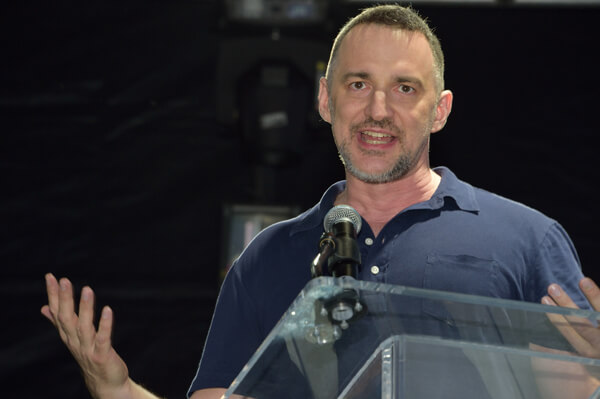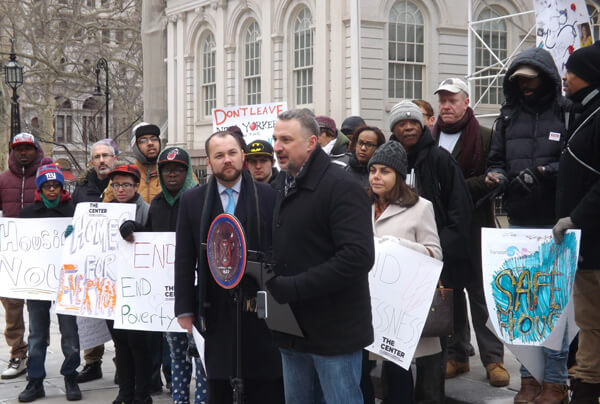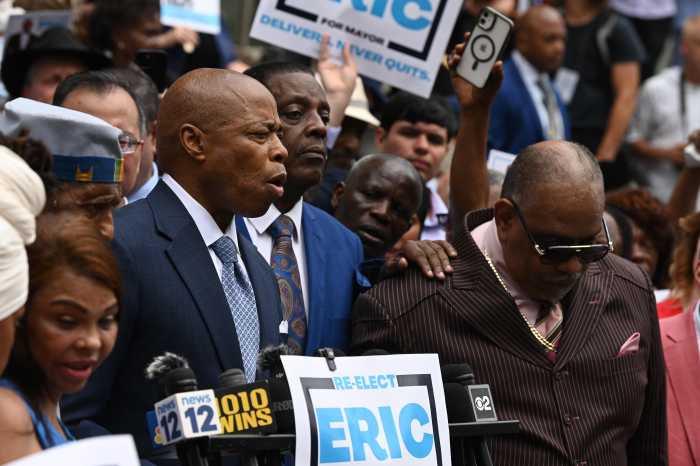Heather Gay, deputy executive director of programs at the Ali Forney Center. | GAY CITY NEWS
BY DUNCAN OSBORNE | A leading group that serves homeless LGBT youth has begun providing hormone therapy for its transgender clients at its West 125th Street drop in center.
“It felt like we were doing a disservice to our trans clients by not doing this on site,” said Heather Gay, deputy executive director of programs at the Ali Forney Center (AFC), which helps homeless LGBT youth aged 16 to 24. “We certainly had a number of clients who expressed to us that they do want hormones.”
In an indication of the demand, the program, which is roughly two weeks old, has eight people enrolled with the potential to enroll another dozen. Only those who are 18 or older can participate.
“We’re going to start it small with a pilot group,” Gay said. “Many of the clients we’re starting with we’ve known for a while.”
Developing the program took more than two years. The effort uses an adapted protocol for helping transgender clients that was originally written by the Callen-Lorde Community Health Center, the clinic for LGBT people. Callen-Lorde maintains a waiting list of transgender clients who want services.
“[Callen-Lorde] does most of this work in the city,” said Elisa Wallman, Institute for Family Health’s (IFH) director of community programs, which provides care for the homeless at eight Manhattan locations, including AFC. “They have a long waiting list so there is an unmet need.”
AFC has an existing relationship with IFH, a non-profit that helps “medically underserved communities.” IFH already has a registered nurse at AFC three days a week, and a doctor on site one day a week.
“The idea that we discussed with Ali Forney is we’re going to roll this out slowly because we don’t know what the burden is going to be on our staff,” Wallman said, adding that IFH anticipates increasing the service over time.
For transgender clients, this is significant. It means they will have an experienced medical provider delivering their healthcare in a friendly environment. Previously, such services were available, but finding a knowledgeable and available doctor was difficult and paying for them was even tougher.
New York is one of 10 states, along with the nation’s capital, that require that private insurers pay for medically necessary healthcare for transgender people. Eight of those 10, including New York, require Medicaid, the government health insurance program for the poor, to pay for such care. New York only enacted these requirements in late 2014. Medicaid in New York will only pay for counseling for transgender people under 18. Previously, transgender people were forced to pay for such services themselves if they had a private insurer that did not cover them.
Clients can buy hormones on the street or over the Internet, where the quality and safety of the product may be questionable. They can buy from friends, which may assure a safer drug, but not necessarily a reliable supply. They may not have access to clean needles to inject some of the drugs if they buy on the street. And the clients may lack knowledge about dosing, scheduling, and general care for transgender people.
“We know that a lot of the young people were buying hormones on the street, so their care was unmonitored,” Wallman said.
With the expansion of ways to pay for healthcare for transgender people, the pool of doctors who can deliver such care may grow larger, but initially the early entrants into the practice may be less informed about best practices.
“Now there are doctors who are doing it, but they are new,” Gay said. “My sense is that our clients are so desperate, they’re willing to participate.”
The number of transgender people who seek hormone therapy or other interventions may have grown, while the obstacles to that care have been reduced. It was once true that a transgender person seeking to transition would be asked to live as their gender for some period of time and get approval from a mental health professional.
“A lot of those gatekeeping kind of procedures are not being used anymore,” Gay said. “It’s not very long and drawn out.”
AFC serves about 1,000 clients a year and 20 to 30 percent are transgender. The agency relies on what its clients say, believing that they are best able to judge their experience.
“They’re not starting hormones for fun or because they haven’t thought this out,” Gay said. “They are the experts on their own identity.”



































